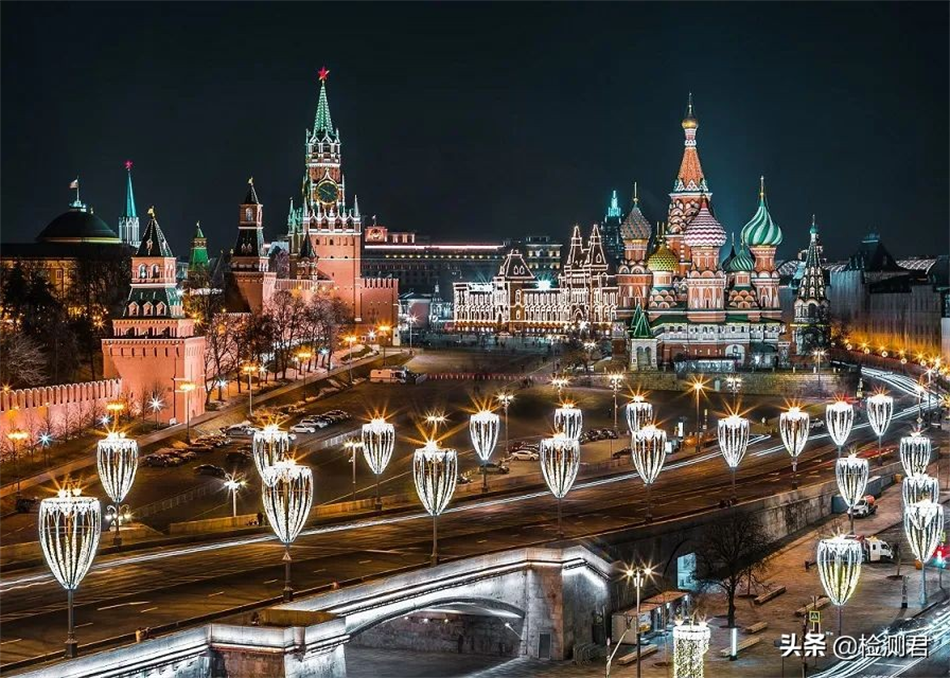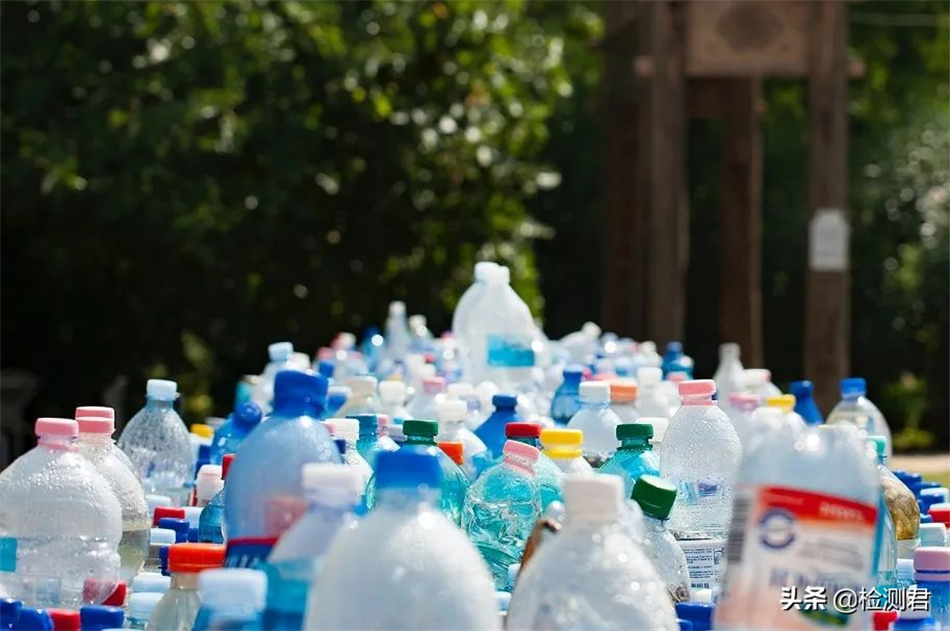Recently, many new foreign trade regulations at home and abroad have come into effect, involving biodegradation standards, some US tariff exemptions, CMA CGM shipping embargoed plastics, etc., and more relaxation of entry policies for many countries.
#new rule New foreign trade regulations that have been implemented since June 1. The United States extends tariff exemptions for some medical products2. Brazil reduces and exempts import tariffs on some products3. Several import tariffs from Russia have been adjusted4. Pakistan bans the import of non-essential goods5. India restricts sugar exports to 5 June 6. CMA CMA stops transporting plastic waste 7. Greece further tightens its comprehensive plastic ban 8. National standards for biodegradable plastics will be implemented in June 9. Many countries relax entry policies
1.The U.S. extends tariff exemptions for some medical products
On May 27, local time, the Office of the United States Trade Representative (USTR) announced that the exemption from punitive tariffs on some Chinese medical products will be extended for another six months.
The exemption was reportedly first announced in December 2020 and has been extended once in November 2021. Relevant tariff exemptions cover 81 health care products needed to respond to the new crown epidemic, including hand sanitizer pump bottles, plastic containers for disinfecting wipes, fingertip pulse oximeters, blood pressure monitors, MRI machines and more.
2. Brazil exempts some products from import duties
On May 11, local time, the Brazilian Ministry of Economy announced that in order to alleviate the impact of high inflation in the country on production and life, the Brazilian government officially reduced or exempted import tariffs on 11 products. Products that have been removed from tariffs include: frozen boneless beef, chicken, wheat flour, wheat, biscuits, bakery products and confectionery, sulphuric acid and corn kernels. In addition, the import tariffs on CA50 and CA60 rebars have been reduced from 10.8% to 4%, and the import tariffs on Mancozeb (fungicide) have been reduced from 12.6% to 4%. At the same time, the Brazilian government will also announce an overall reduction of 10% in import tariffs on various products, except for a few products such as automobiles and cane sugar.
On May 23, the Foreign Trade Commission (CAMEX) of the Brazilian Ministry of Economy approved a temporary tax reduction measure, reducing the import tariff of 6,195 items by 10%. The policy covers 87% of all categories of imported goods in Brazil and is valid from June 1 this year until December 31, 2023.
This is the second time since November last year that the Brazilian government has announced a 10% reduction in tariffs on such goods. Data from the Brazilian Ministry of Economy shows that through two adjustments, the import tariffs on the above-mentioned goods will be reduced by 20%, or directly reduced to zero tariffs.
The scope of application of the temporary measure includes beans, meat, pasta, biscuits, rice, building materials and other products, including South American Common Market External Tariff (TEC) products.
There are 1387 other products to maintain the original tariffs, including textiles, footwear, toys, dairy products and some automotive products.
3. Several import tariffs in Russia have been adjusted
Russia’s Ministry of Finance announced that from June 1, Russia’s oil export tariffs will be reduced by $4.8 to $44.8 a ton.
From June 1, tariffs on liquefied gas will rise to $87.2 from $29.9 a month earlier, tariffs on pure LPG distillates will rise to $78.4 from $26.9 and tariffs on coke will drop to $2.9 a ton from $3.2 a ton.
On the 30th local time, the Press Office of the Government of the Russian Federation announced that from June 1st to July 31st, a tariff quota system will be implemented for the export of ferrous metal scrap.
4. Pakistan bans imports of non-essential goods
The Ministry of Import and Export Commerce of Pakistan issued SRO Circular No. 598(I)/2022 on May 19, 2022, announcing a ban on the export of luxury goods or non-essential goods to Pakistan. The impact of the measures will be around $6 billion, a move that will “save the country valuable foreign exchange.” In the past few weeks, Pakistan’s import bill has been rising, its current account deficit has been widening, and its foreign exchange reserves have been shrinking. 5. India restricts sugar exports for 5 months. According to the Economic Information Daily, the Indian Ministry of Consumer Affairs, Food and Public Distribution issued a statement on the 25th saying that in order to ensure domestic supply and stabilize prices, the Indian authorities will Sugar exports are regulated, limiting sugar exports to 10 million tonnes. The measure will be implemented from June 1 to October 31, 2022, and relevant exporters must obtain an export license from the Ministry of Food to engage in sugar export trade.
6. CMA CGM stops shipping plastic waste
At the “One Ocean Global Summit” held in Brest, France, the CMA CGM (CMA CGM) group issued a statement that it will stop the transport of plastic waste by ships, which will take effect on June 1, 2022. The France-based shipping company currently transports around 50,000 TEUs of plastic waste a year. CMA CGM believes its measures will help prevent such waste from being exported to destinations where sorting, recycling or recycling cannot be guaranteed. Therefore, CMA CGM has decided to take practical steps, if it has the capacity to operate, and to actively respond to NGO calls for action on ocean plastics.
7.Greece’s comprehensive plastic ban is further tightened
According to a bill passed last year, from June 1 this year, an environmental tax of 8 cents will be levied on products containing polyvinyl chloride (PVC) in packaging when they are sold. This policy mainly affects the products marked with PVC. plastic bottle. Under the bill, consumers will pay 8 cents per item for products containing polyvinyl chloride (PVC) in packaging, plus 10 cents for VAT. The amount of the fee should be clearly indicated in the sales document before VAT and recorded in the company’s accounting books. Merchants must also display the name of the item for which the environmental tax is to be charged to consumers and indicate the amount of the fee in a visible place. In addition, since June 1 this year, some manufacturers and importers of products containing PVC in their packaging are not allowed to print the “package recyclable” logo on the package or its label.
8. The national standard for biodegradable plastics will be implemented in June
Recently, the State Administration for Market Regulation and the National Standardization Administration issued an announcement stating that “GB/T41010-2021 Biodegradable Plastics and Products Degradation Performance and Labeling Requirements” and “GB/T41008-2021 Biodegradable Drinking Straws” are two national recommended standards. It will be implemented from June 1, and biodegradable materials will welcome opportunities. “GB/T41010-2021 Biodegradable Plastics and Products Degradation Performance and Labeling Requirements”:
http://openstd.samr.gov.cn/bzgk/gb/newGbInfo?hcno=6EDC67B730FC98BE2BA4638D75141297
9. Many countries relax entry policies
Germany: From June 1st, entry regulations will be relaxed. From June 1st, entry into Germany will no longer be required to present the vaccination certificate called “3G”, the new crown recovery certificate, and the new crown test negative certificate.
United States: USCIS will fully open expedited applications from June 1, 2022, and will first accept expedited applications for EB-1C (E13) executives of multinational companies that have been submitted on or before January 1, 2021. From July 1, 2022, expedited applications for NIW (E21) national interest waiver applications submitted on or before June 1, 2021 will be open; EB- 1C (E13) senior executives of multinational companies apply for an expedited application.
Austria: The ban on masks in public places will be lifted from June 1. Starting from June 1 (next Wednesday), in Austria, masks are no longer mandatory in almost all areas of daily life except Vienna, including supermarkets, pharmacies, gas stations, and public transportation.
Greece: The “mask order” for educational institutions will be lifted from June 1. The Greek Ministry of Education stated that “the mandatory wearing of masks indoors and outdoors in schools, universities and all other educational institutions nationwide will be terminated on June 1, 2022.”
Japan: Resumption of entry of foreign tour groups from June 10 From June 10, guided group tours will be reopened to 98 countries and regions around the world. Tourists who are listed by Japan from areas with low infection rates of the new coronavirus are exempted from testing and isolation after entering the country after receiving three doses of the vaccine.
South Korea: Resumption of tourist visas on June 1 South Korea will open tourist visas on June 1, and some people are already preparing to travel to South Korea.
Thailand: From June 1st, entry into Thailand will be exempted from quarantine. From June 1st, Thailand will adjust its entry measures again, that is, overseas travelers will not need to be quarantined after entering the country. In addition, Thailand will fully open its land border ports on June 1.
Vietnam: Lifting all quarantine restrictions On May 15, Vietnam officially reopened its borders and welcomes tourists from all over the world to visit Vietnam. Only a negative PCR test certificate is required upon entry, and the quarantine requirement is exempted.
New Zealand: Full opening on July 31 New Zealand recently announced that it will fully open its borders on July 31, 2022, and announced the latest policies on immigration and international student visas.
Post time: Aug-25-2022








